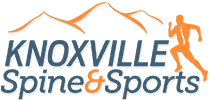Knoxville Spine & Sports offers an ACL prevention program to reduce the risk of ACL tears and other serious knee injuries in male and female athletes. The ACL (Anterior Cruciate Ligament) is a ligament in the knee that crosses from the underside of the femur (the thigh bone) to the top of the tibia (the bigger bone in the lower leg). Injuries to the ACL can occur in a number of situations, including sports, falls, non-contact movements, and can be quite serious, requiring surgery.
The anterior cruciate ligament is so called because it cross the other cruciate ligament (PCL) in front of the knee. "Cruciate" taken from the Latin "crux" for "cross" means "in the form of a cross. So, the ACL crosses Anterior to or in front of the PCL and keeps the Tibia from moving too far forward in relationship to the Femur.
Statistics for ACL Tears & Knee Injuries
The Incidence of serious knee injury is alarming. As of 2015 it was reported by the Cincinnati Sports Medicine Orthopedic Center that 200,000 ACL injuries occur in the USA each year. 1 in 100 high school female athletes sustain ACL injuries per year and the majority are non-contact injuries in sports such as soccer, basketball, and volleyball.
The incidence of ACL injuries is substantiated by Arendt et al. in AJSM and other per reviewed journals as being 4-6x higher in female athletes than males. Why is this so Female dominate?
Most ACL non-contact injuries result in some degree of a sprain/strain depending on the severity of the injury. These injuries usually occur with twisting, jumping, and landing or cutting movements. Many times the injury involves more structures than just the ACL. The treatment is usually surgical intervention and takes up to a year to recover. So again, why so female dominated?
ACL Injuries in Female Athletes
Research has helped to explain the reasons this injury is more common in female athletes than male. First the shape of the distal femur is narrower in females and valgus knee stress (positions of being nock kneed) causes a greater shearing force on the ACL. Second, females have a greater Q angle and joint laxity causing a greater propensity for valgus stress on the knees. Third, increased levels of Estrogen and a decrease in testosterone make females at greater risk of injury due to increased recovery time and decreased muscle mass. Fourth, there is a shortage of good strength and conditioning per sport.
Our Approach
In our sports chiropractic clinic in Knoxville, TN, we make every effort to grow in our knowledge and skill set for the good of our patient and to better our profession. In our effort to grow a book was recommended to us, Noyles’ Knee Disorders (surgery, rehabilitation, and clinical outcomes). Chapter 19 of this book was entitled, Decreasing the Risk of Anterior Cruciate Ligament Injuries in Female Athletes. It was through this book Dr. Bert was introduced to the alarming statistics on Non-Contact ACL injuries in Female Athletes specifically.
We base our program off of the research and development of this screening process and neuromuscular retraining process known as the Sportsmetrics program created by the Cincinnati Sports Medicine Research and Education Foundation. To learn more, check out their website at sportsmetrics.org
So what are the results of our Sportsmetrics program?
1.) First, it is very successful at predicting athletes with a high probability of ACL injuries.
2.) Second, it increases ham/quad ratio from 51% to 60%, decreases the landing forces on the knee, and increases the athlete’s power, strength, and jumping height.
In short it reduces the risk of ACL injury by 90% of those who use this program.
To prevent you from going to a chiropractic sports physician in Knoxville, TN for ACL treatment in the future, call us today to get started on the ACL prevention program.

